
We’ve always considered ourselves to be pretty light on our feet; flexible, ready to dodge to the left or right however necessary to meet most every challenge.
Then came COVID and the wrecking of education and then of the economy. It’s been a bit relentless. And like everyone, everywhere, it’s re-shaping us.
It started in Asia much sooner than in the West. We started hearing about it in December and it was January when we took our first steps toward some sort of preparedness. For what, we weren’t sure. This thing we thought was just another wintertime flu, mostly confined to China, had not yet shown itself. But it felt like time to get ready for something.
Not knowing what to do, if anything at all, we cleaned out the office. As one does when there’s trouble looming. ☺
We cleared every surface, built some more storage, purged storage rooms. Emptied out. Cleaned house. Upgraded some computers, stocked up on office supplies. The staff thought I was in yet another OCD Virgo frenzy, but no. My brain was already thinking of the stockpiling of food.
If that wasn’t where this was going, it never hurts to do a good purge.
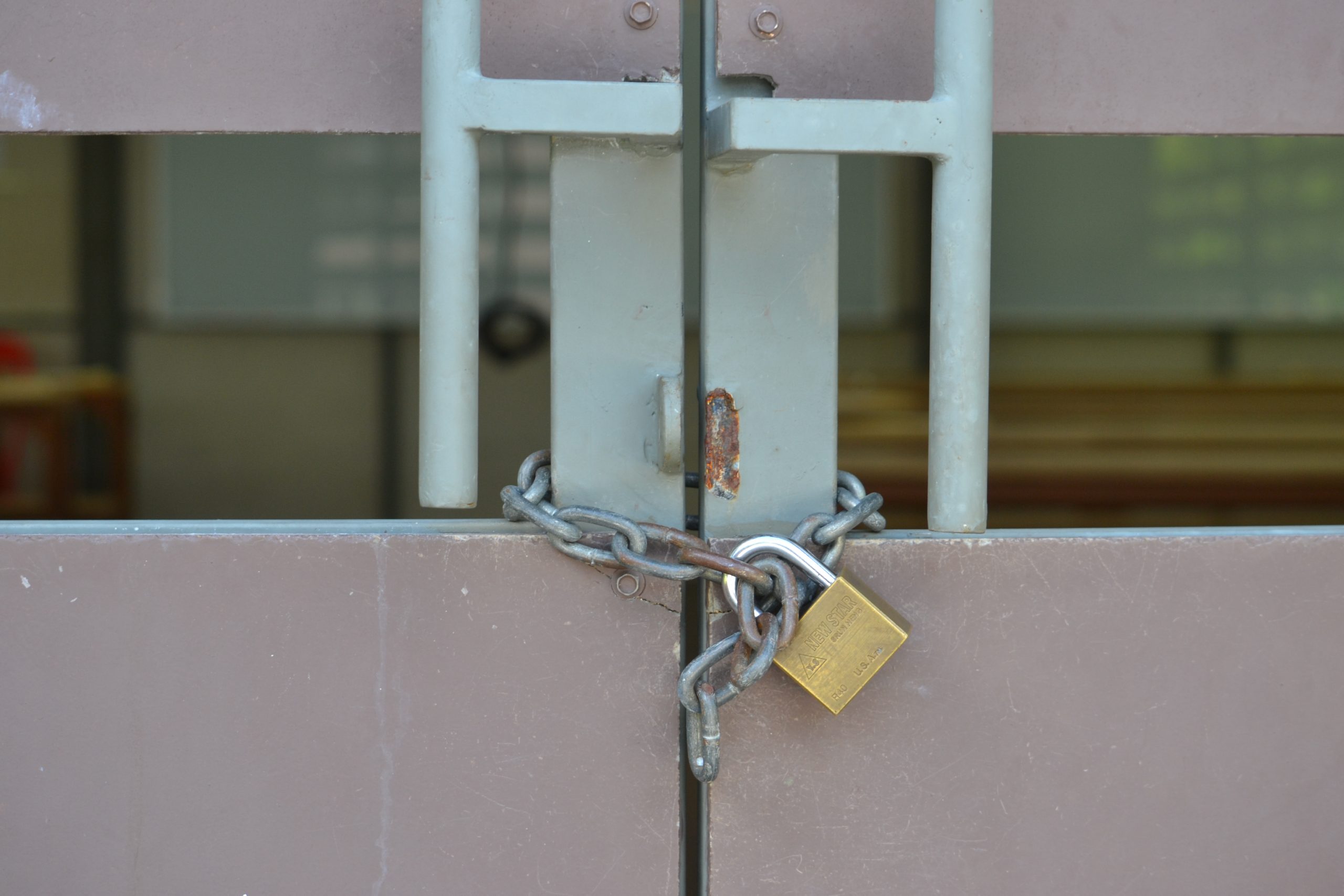
We were ready when the Cambodian government acted decisively and suddenly, closing schools Mid-March. Closed the border. We were never put in any sort of lockdown here because when the government says “okay everyone do this” then that’s pretty much what everybody does.
Wash your hands. Don’t gather. Wear a mask. Ok.
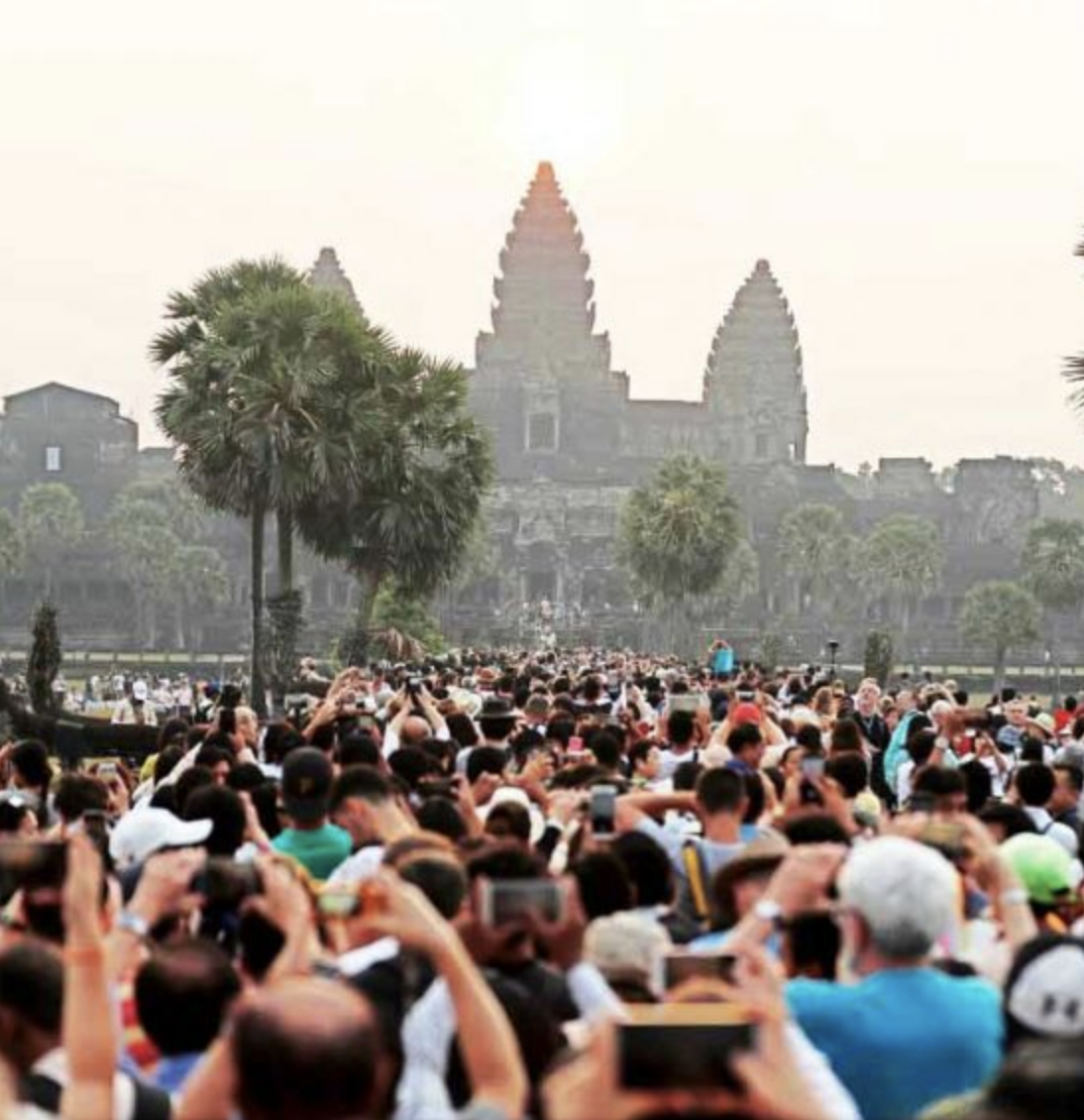
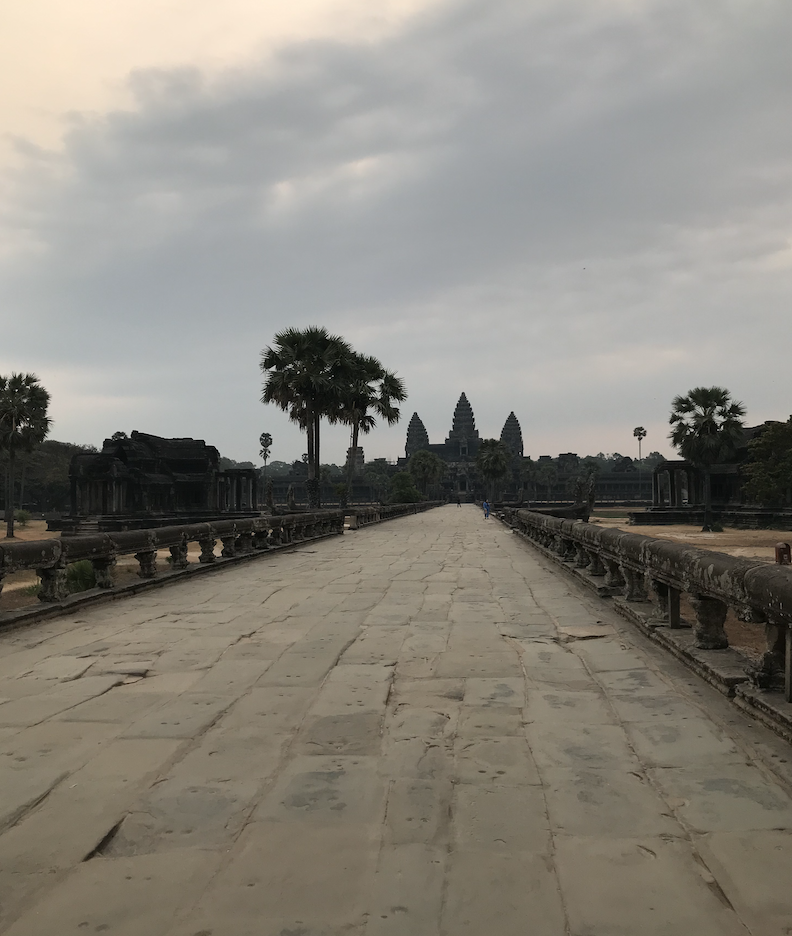
Siem Reap is a tourist town that last year saw 3 million visitors. Very quickly all the tourists disappeared. All. Of. Them. The economic impact on those engaged in tourism, the vast majority of whom make meager wages and live a hand-to-mouth existence, was swift and crushing. Most of those displaced workers were from villages out in the Province. Their wages and tips supported families back in those villages. The knock on effect was also swift and crushing.
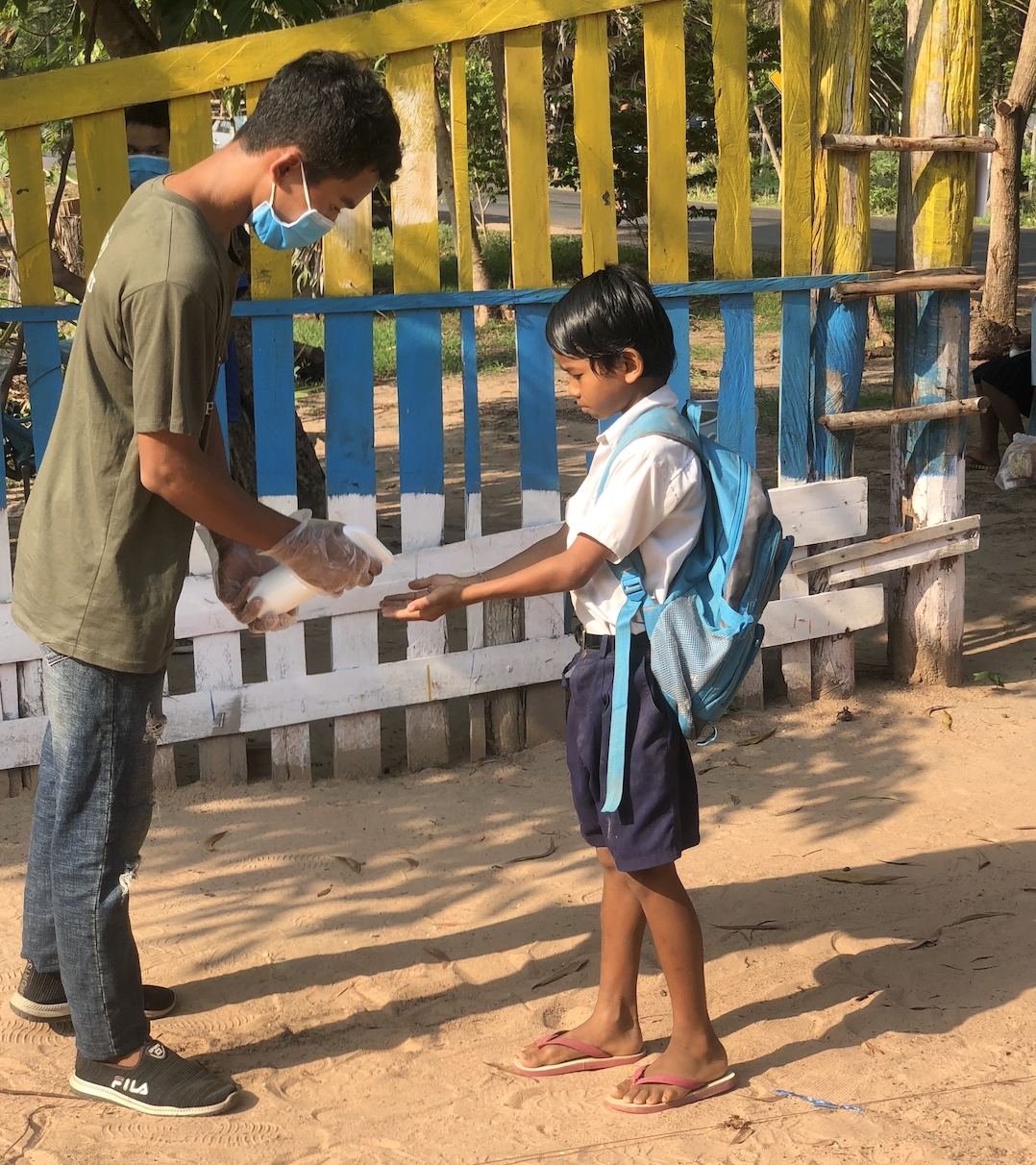
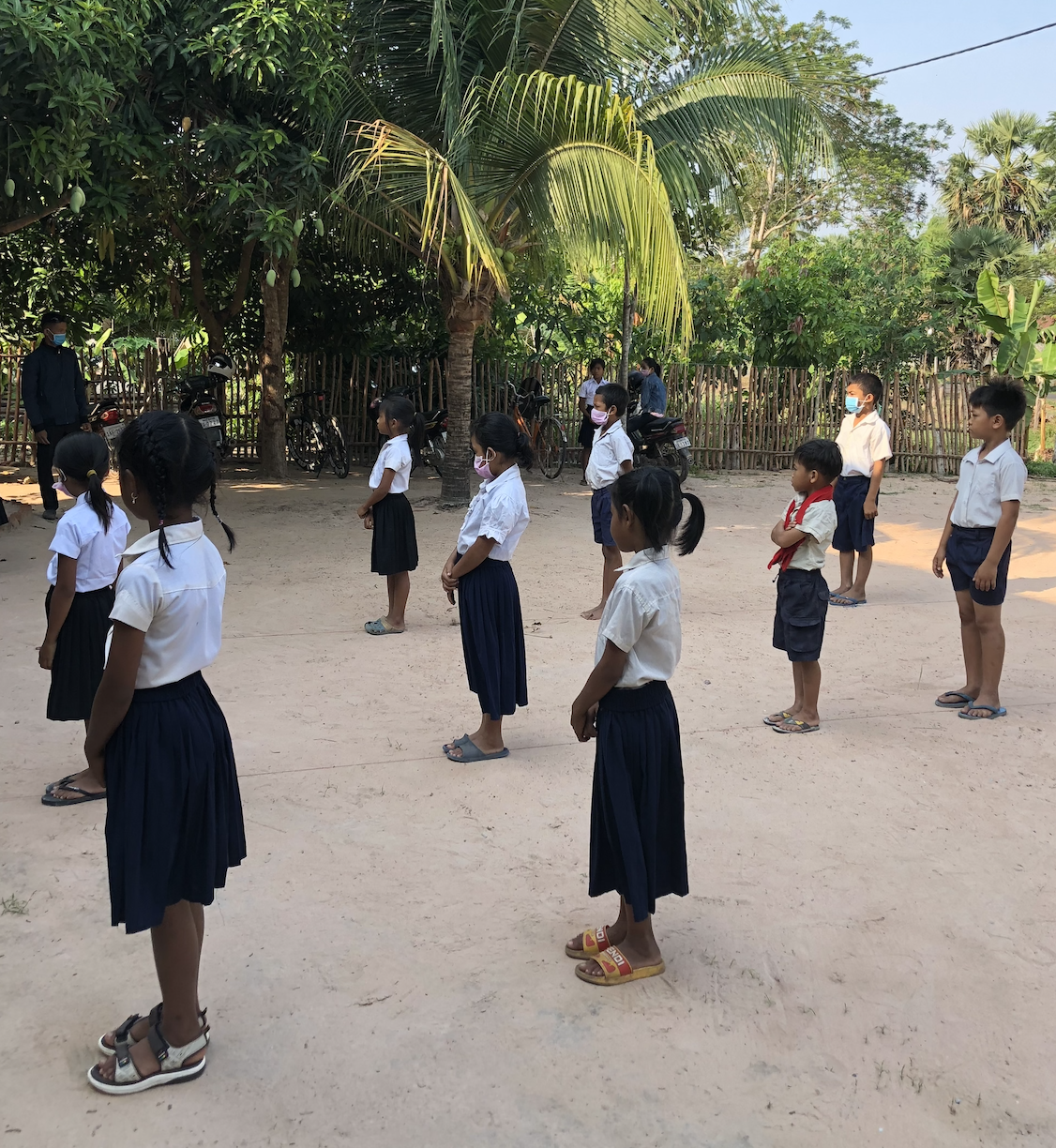
We started doing non-contact food drops to our most fragile communities immediately. For those children whose psychological and physical wellness depends largely on food provided at school – and who we knew could easily plunge into a difficult vortex without that everyday support. We’ve seen the effects of going months without “school food” before. That’s why at those particular locations, school carries on all 12 months of the year.
We also knew that many of those 800 families depended on meager incomes coming home from siblings, daughters, and sons who were working in Siem Reap; most of them tuk-tuk drivers, dishwashers, gardeners, guards. Unskilled employment options were the first to go. Most of those people returned to their villages months ago and the wringing of hands commenced.
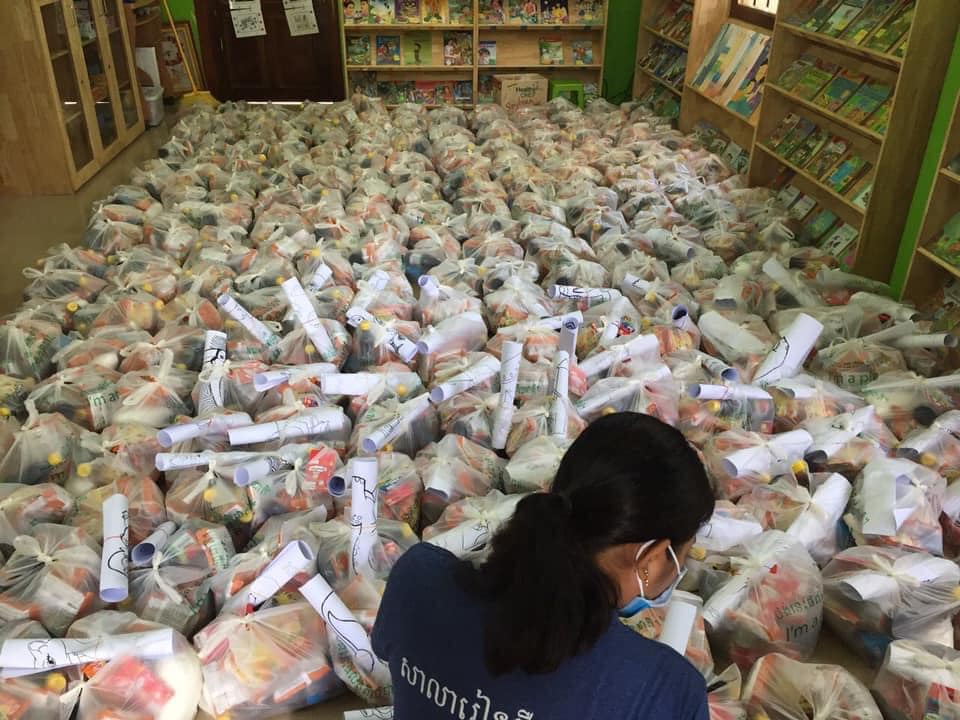
We have been and will be distributing 2,000 food parcels a month. That will go on until we can cook at school again. Maybe November. Maybe not. We don’t have any idea, but we’re committed. Since food distributions began, there have been a total of FOUR students who failed to come to get their food. Every one of them because the family had relocated temporarily to work in fields and farms and fisheries outside their village. The need has proven to be great. And greatly appreciated.
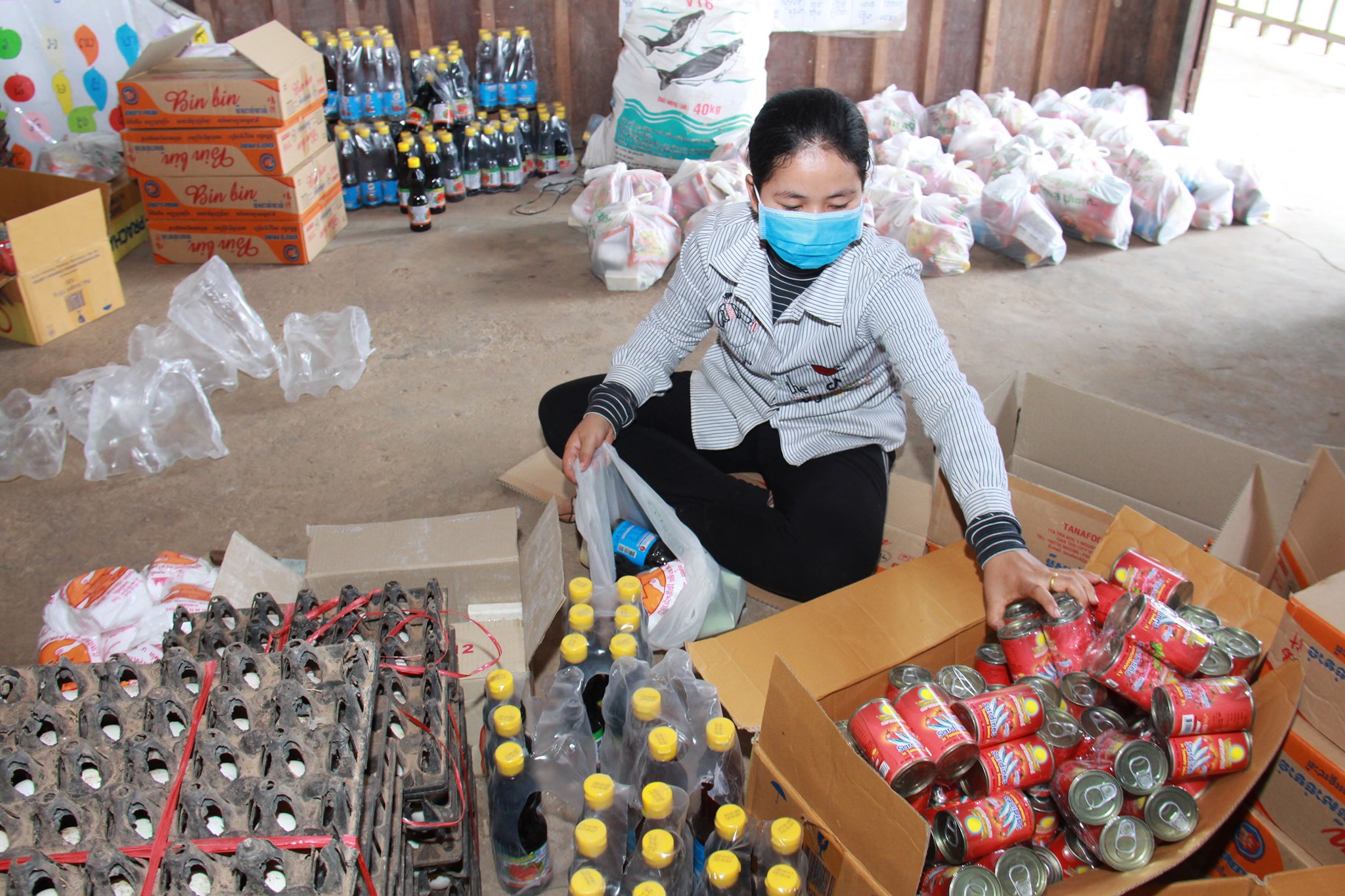
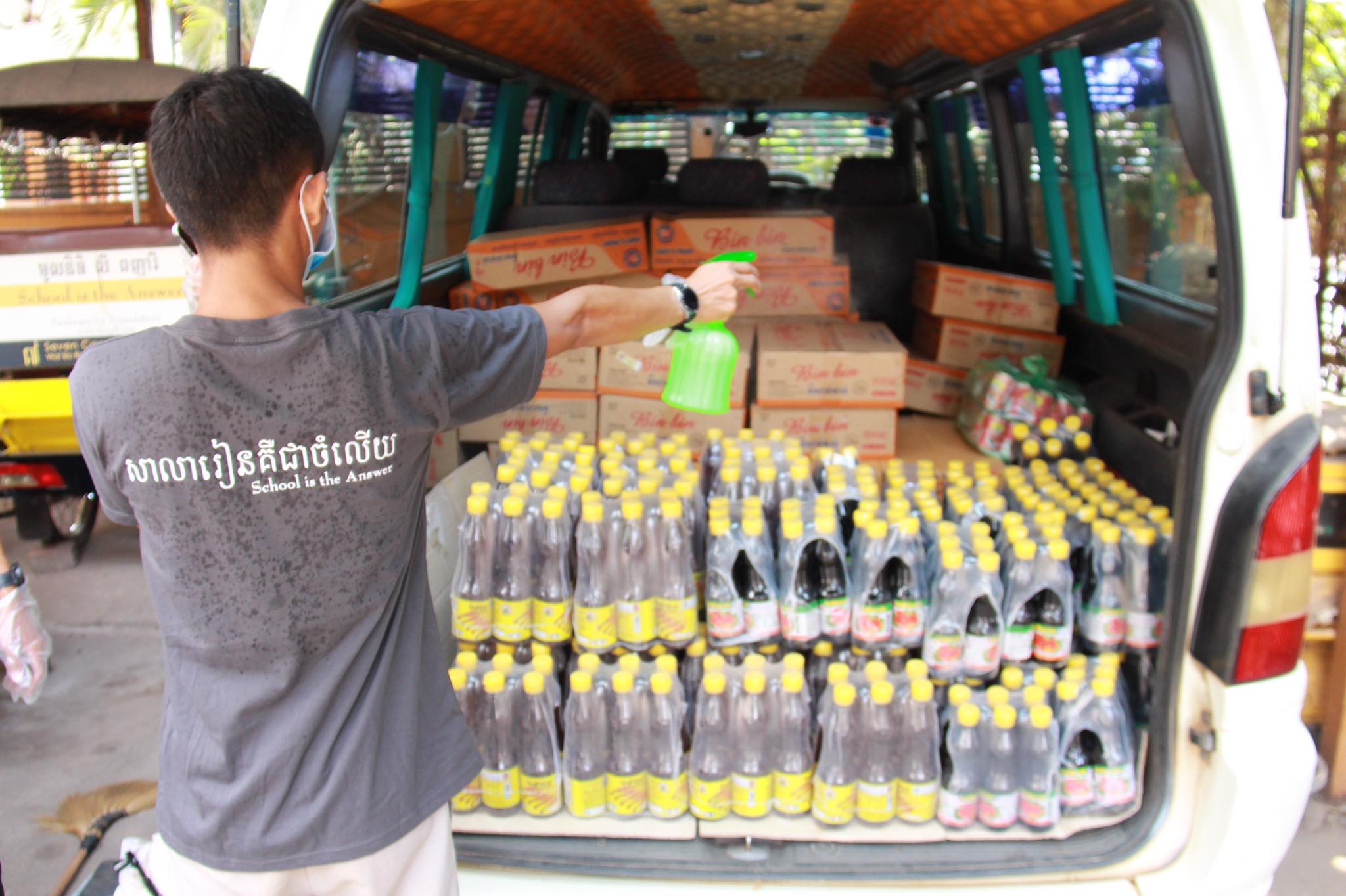
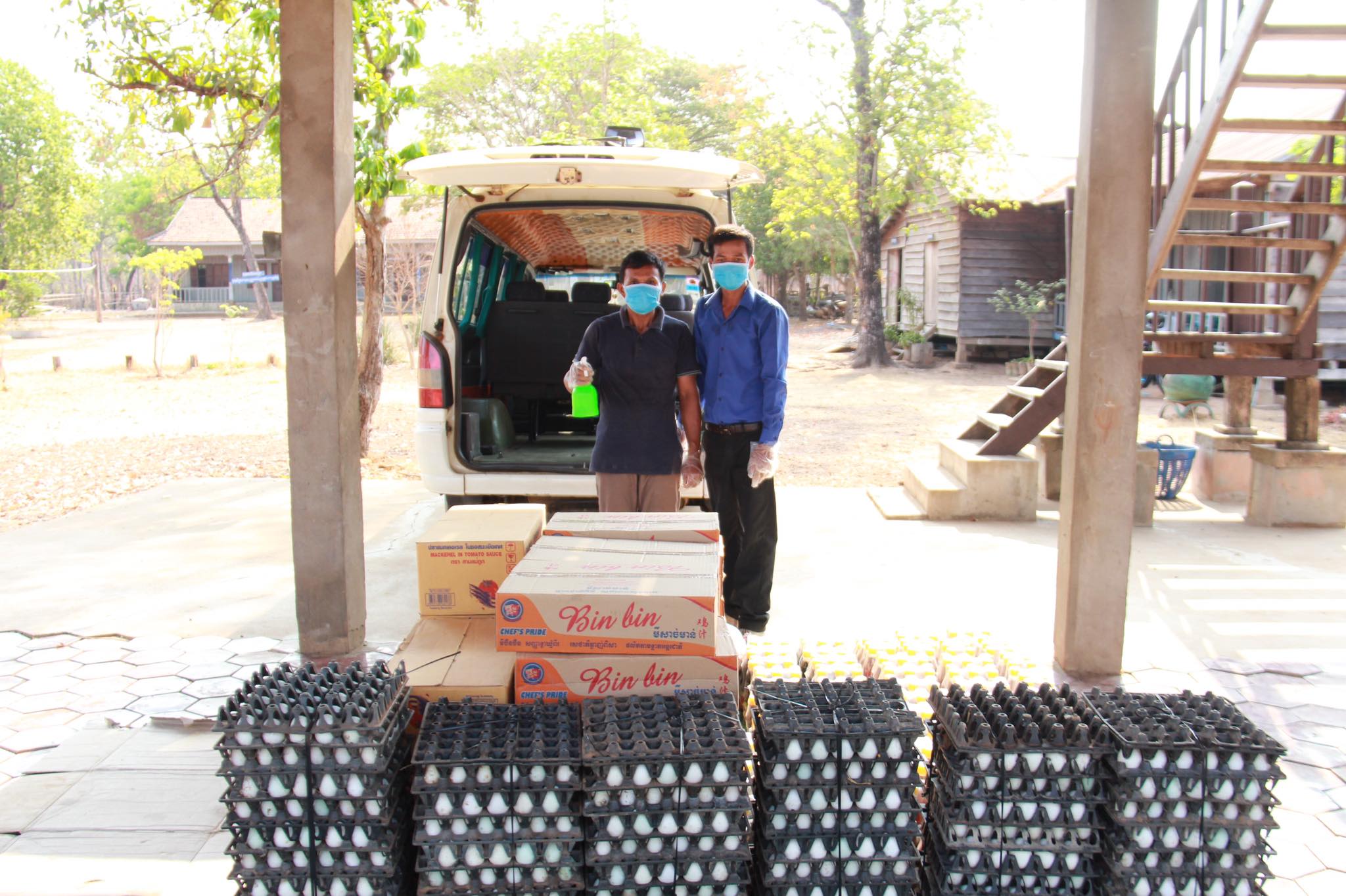
It should be mentioned that even on a good day there is basically no reliable health care in Cambodia, especially up in the Provinces where we are. Getting a bone set or an infection cleared is already a major challenge on a good day.
It’s common knowledge that China has become the new Patron of Cambodia and although there is much to be said about the way they operate in the country, they sent specialists and ventilators and kits early on, along with labs and PPE and training. They helped Cambodia set up best they could for what the specialists from Wuhan knew was coming.
And then it didn’t come. Or at least it doesn’t seem like it came. We’re not sure why it didn’t, no one is, though there are plenty of theories. At the date of this writing (July 12th) Cambodia, with a population of 16 million, has reported 140 cases. No deaths. How can that be? Our first assumption was that plenty of people were sick and dying but the government has no idea about it. 80% of the population lives in rural areas, many of them quite isolated. People are born and die every day and there are no birth or death certificates.
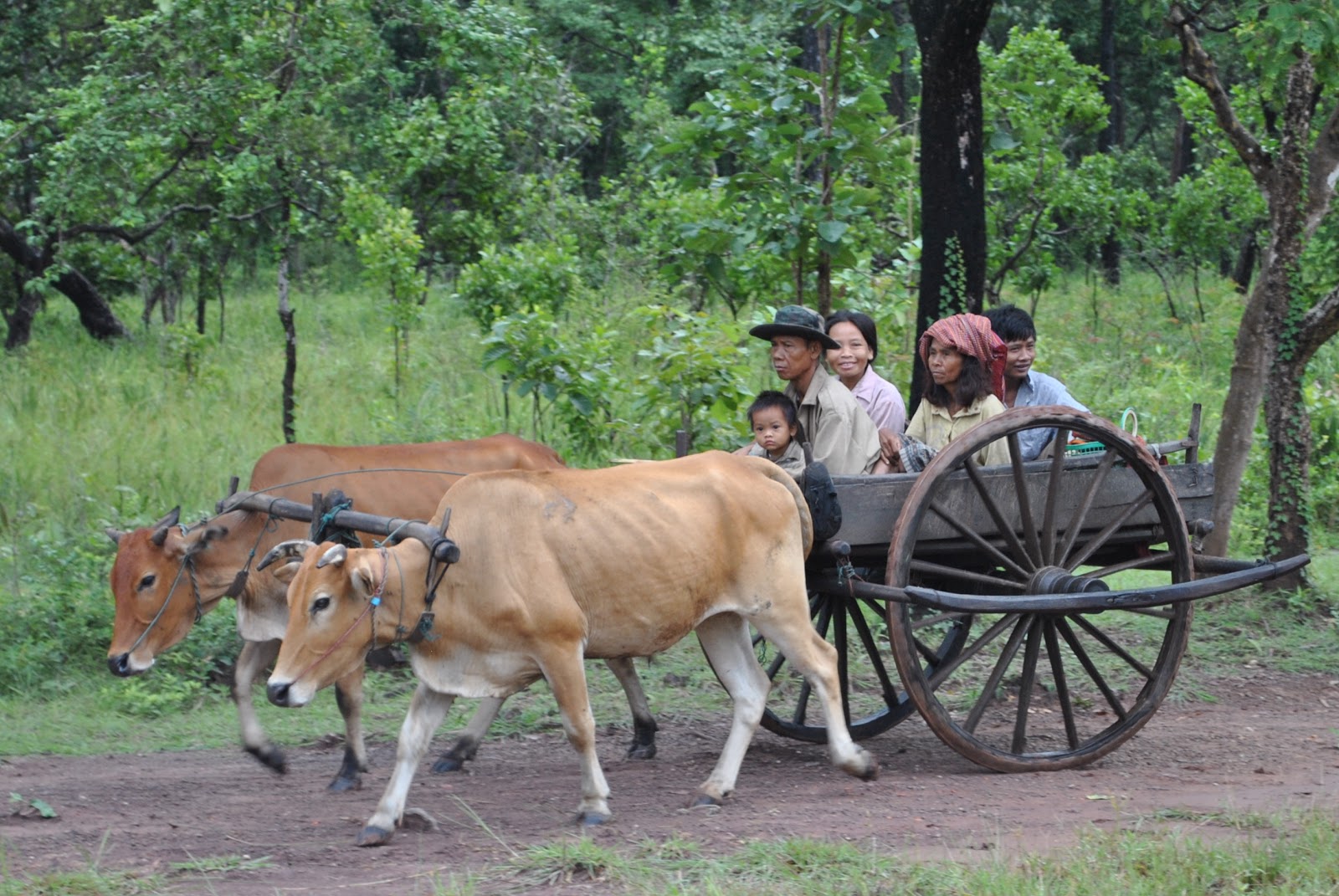
We found that people were born and perished as normal, from normal things, over the last few months. There was not the same Armageddon scenario we were seeing on CNN or the BBC. There still isn’t. People have said “well they aren’t testing enough” or “they are withholding the reality” and both those things could very well be true, but at this point, to be frank, we’d see unusual death rates in the places where we work. And there aren’t. This thing has – as far as we know, so far – been a blip.
Whatever the reason(s), Cambodia seems to have caught a break. Touchwood.
Food distributions, which began as a massive lift with a lot of moving parts given the sheer numbers and all the safety protocols, are running at an exceptional level of efficiency. With this immediate problem addressed, we turn our attention to the academic train wreck the students are trying to survive.
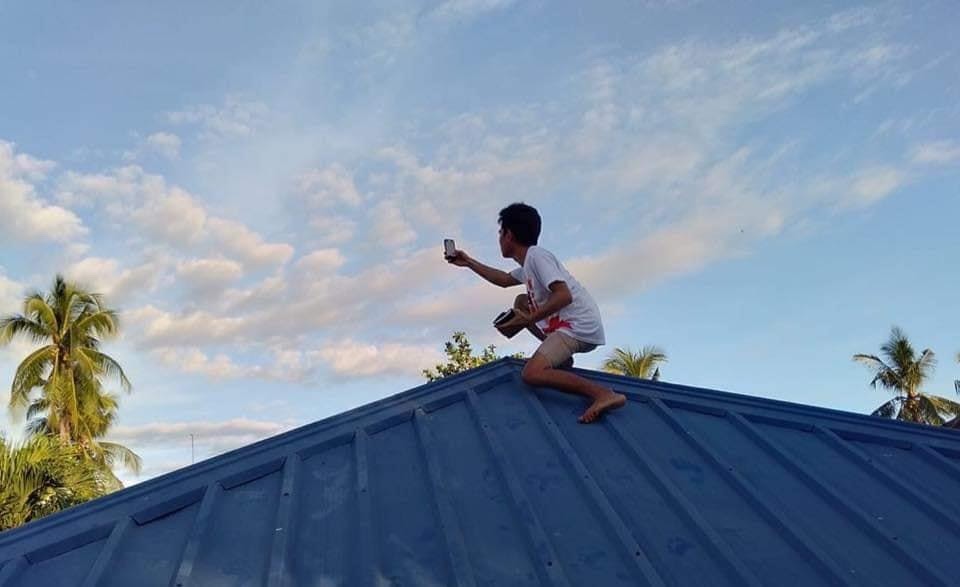
Come around in a couple of weeks for Part II.
Like the sound of our programs and want to get involved, but not sure how?
For as little as $10 a month, you could contribute to the ongoing education of our students. $120 goes a long way in Cambodia: that’s 5 village children on the road to education, with access to school and clean drinking water for half a year. Or a million other things, all of which coalesce into the tools needed for life to change for the better!
Follow our Instagram or Facebook accounts. Like, comment on or share our posts – Do it. It’s free. And it’s a huge help for us!
Have some questions?
Email us for a chat at [email protected]

Recent Comments